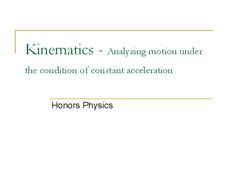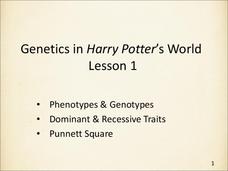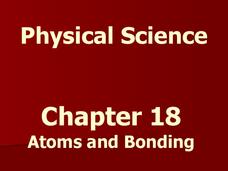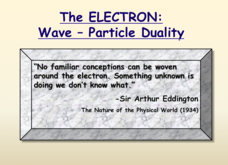Curated OER
Circular Motion
A helpful physics presentation will have you talking in circles! The material covers circular motion, and includes diagrams, formulas, and example problems. When used in addition with directed instruction and a teacher-created form...
Curated OER
Friction and Inclined Planes
Teaching about inclined planes may seem like an uphill battle, but there's a straightforward way to do it. An Honors Physics presentation covers static and kinetic friction, the forces of friction, and inclines. Additionally,...
Mr. E. Science
Earthquakes
Learn about the causes of earthquakes, as well as the value of seismographs, with an informative presentation. From the Richter Scale to the Mecalli Scale, learners discover elements that make an earthquake occur.
Roland Park Country School
Butterfly or Moth?
What is the main difference between a moth and a butterfly? Butterflies have club-shaped antennae, while moths have a feather-like antennae. But what else differentiates these beautiful insects? The presentation in the resource...
Curated OER
Concave Mirrors
Study concave and convex mirrors with an in-depth slideshow presentation. Slides contain term definitions as well as labeled diagrams.
Bowels Physics
Graphical Analysis
Assist your class in learning graphical analysis by reviewing the slide presentation. Class members review 15 slides to further understand concepts such as velocity and acceleration. They conclude with practice problems related to the...
Bowels Physics
Kinematics
Lead your class on a speedy journey as you present an effective lesson on kinematics. Individuals review speed, acceleration, and velocity before completing several practice problems to integrate the concepts.
Bowels Physics
Impulse and Momentum
Be impulsive with your high school physics class. Emerging physicists review the slide presentation and learn about impulse, momentum, collisions, and how each variable may be affected. They complete practice problems and conclude with a...
Bowels Physics
Work, Energy, and Power
Work, energy, and their relationship to power: what is the common thread? Explore this with your class as they learn the concepts of work and energy, both kinetic and potential, before completing multiple practice problems to...
Rainforest Alliance
Who Takes Care of the Maya Forest Corridor?
Who keeps animals safe? Who keeps us safe? Discover the helpers that make learning and growing possible through a medley of activities that focus on habitats—ours and those in the rainforest. Scholars are asked to identify one...
Rainforest Alliance
How Do Jaguars and Howler Monkeys in Belize Depend on Us?
How does weather play a role in the lives of land and sea creatures? Find out with a instructional activity focused on habitats and the ways animals from different homes are connected. Here, learners explore how the life of a...
Rainforest Alliance
Knowing the Essential Elements of a Habitat
To gain insight into the many different types of habitats, individuals must first get to know their own. Here, scholars explore their school environment, draw a map, compare and contrast their surroundings to larger ones. They then...
Rainforest Alliance
Protecting the Critical Habitat of the Manatee and Loggerhead Turtle
Explore ocean habitats with a instructional activity that showcases the home of manatees and loggerhead turtles in Belize. Here, pupils compare and contrast the homes of ocean animals to those of humans, listen to an original...
New York State University
Law of Conservation of Energy
Become energy efficient with a presentation that covers the Law of Conservation of Energy with friction. It also includes energy transformations, power, and units of measurement.
Curated OER
Vectors
Represent motion with arrows and call them vectors! The lesson is a presentation that models the mathematics involved when determining a resultant vector. It addrssses motions that are parallel, perpendicular, and a combination of...
Mr. E. Science
Atmosphere
Earth's atmosphere is full of different energies, from thermal to wind to electromagnetic radiation. Through the presentation, class members discover these energies and how they determine weather patterns.
Prezi
The Six Kingdoms
Why can't dinosaurs clap their hands? Because they no longer exist. The six kingdoms do exist, and through the presentation individuals discover kingdom names, their description, and view photographs of a few samples.
Prezi
Virus Cell Life Cycle/Structure
Viruses were nano before it was cool to be nano. The presentation covers the structure of a virus cell and the life cycle of a virus. It also includes two videos illustrating the virus cell in greater detail.
US National Library of Medicine
Genetics in Harry Potter’s World Lesson 1
By the end of Harry Potter and the Deathly Hallows, we know Harry and Ginny get married, but what will their kids look like? This presentation introduces viewers to Punnett Squares and how to use them to determine both...
US National Library of Medicine
Genetics in Harry Potter’s World Lesson 2
Can we find the phenotypes and genotypes of magical ability for the characters in Harry Potter? Of course, but first we need to understand incomplete or blended dominance, co-dominance, multiple alleles, and regulatory genes. This...
Mr. E. Science
Atoms and Bonding
I don't trust atoms because they make up everything. Budding scientists learn about famous scientists connected to atomic models, chemical, ionic, and hydrogen bonds. The presentation also presents how to count atoms...
Mr. E. Science
Manned Space Exploration: From Apollo to Present
How did the manned space mission program progress? The presentation covers American space exploration from the Apollo missions through the International Space Station.
Mr. E. Science
Motion
An informative presentation covers motion, metric system, conversions, graphing of coordinates and lines, speed, velocity, and acceleration problems, as well as mean calculations. This is the first lesson in a 26-part series.
Science Geek
The Dual Nature of the Electron
Why don't atoms collapse? Scientists debated this concept for years before they understood the dual nature of the electron. Presentation discusses the electron as both a particle and an energy wave. It also relates these concepts to the...
Other popular searches
- Earth Science
- Physical Science
- Life Science
- Science Project
- Science Space
- Environment Science
- History of Science
- Environmental Science
- Pe Science
- Family and Consumer Science
- Consumer Science
- Social Science

























